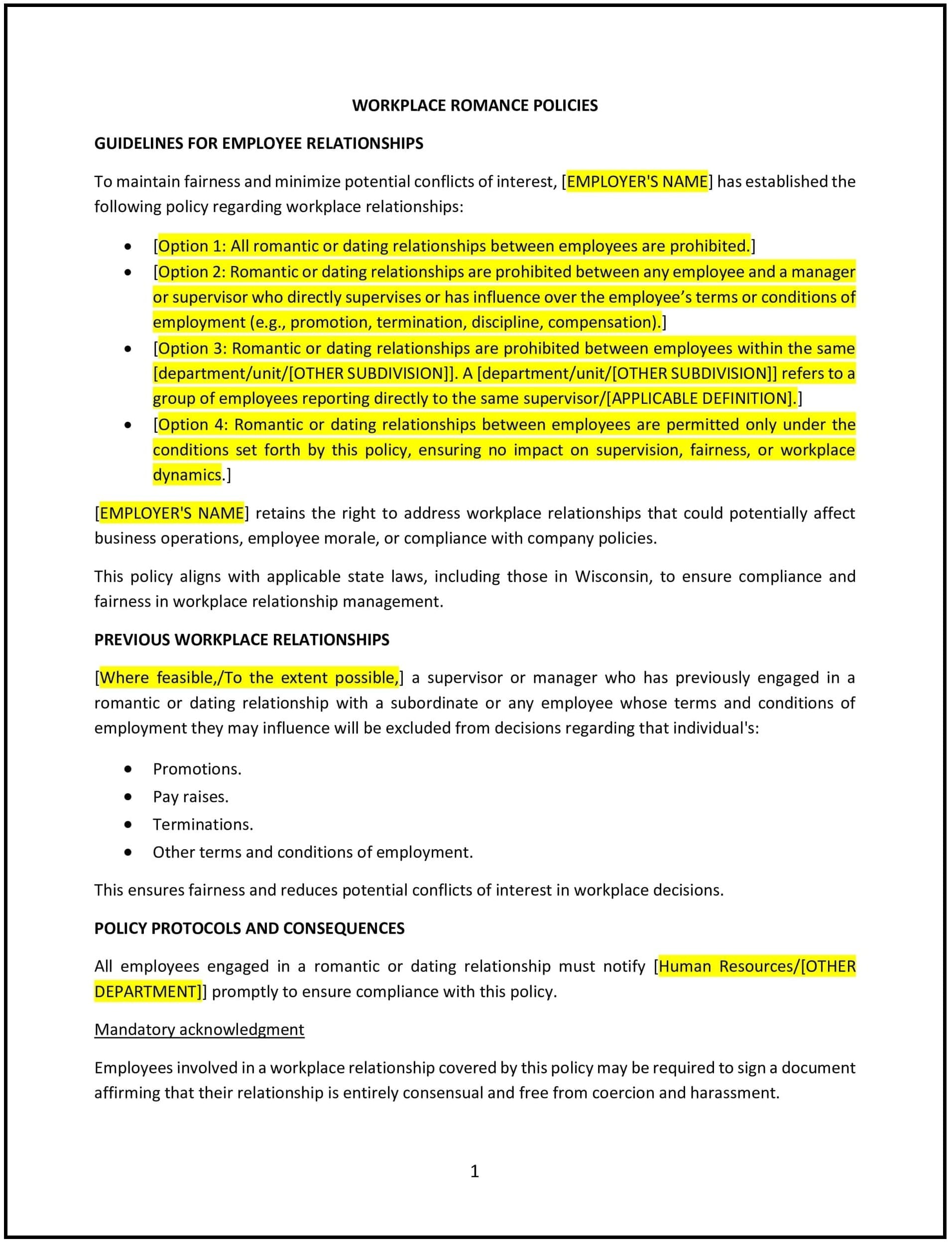Workplace romance policy (Wisconsin): Free template
Got contracts to review? While you're here for policies, let Cobrief make contract review effortless—start your free review now.

Customize this template for free
Workplace romance policy (Wisconsin)
In Wisconsin, a workplace romance policy provides guidelines for managing personal relationships between employees to maintain professionalism and prevent conflicts of interest or disruptions in the workplace. This policy promotes transparency, fairness, and compliance with applicable laws while fostering a respectful work environment.
The policy outlines acceptable behavior, disclosure requirements, and the steps for addressing potential issues arising from workplace relationships.
How to use this workplace romance policy (Wisconsin)
- Define acceptable relationships: Specify which relationships are allowed, such as consensual relationships between peers, and outline any restrictions, such as those involving supervisors and subordinates.
- Require disclosure: Provide a process for employees to disclose workplace relationships that may create a conflict of interest, ensuring confidentiality and discretion.
- Address conflicts of interest: Outline how the company will manage potential conflicts, such as reassigning roles or responsibilities to avoid favoritism or bias.
- Set behavioral expectations: Clearly state the standards of professionalism expected from employees in workplace relationships.
- Support compliance: Align the policy with Wisconsin labor laws, including anti-discrimination and harassment regulations, to ensure legal adherence.
Benefits of using a workplace romance policy (Wisconsin)
- Promotes professionalism: Encourages employees to maintain professional behavior, minimizing workplace distractions and conflicts.
- Reduces conflicts of interest: Helps businesses proactively address potential issues related to favoritism, bias, or conflicts of interest.
- Supports compliance: Aligns with Wisconsin labor laws and anti-harassment regulations, reducing the risk of legal disputes.
- Enhances workplace culture: Fosters a respectful and inclusive environment by setting clear expectations for relationships in the workplace.
- Protects confidentiality: Provides a discreet process for managing workplace relationships, ensuring employee privacy.
Tips for using a workplace romance policy (Wisconsin)
- Communicate the policy: Share the policy during onboarding and ensure it is accessible for all employees to reference.
- Train managers: Provide training to supervisors on handling workplace relationships professionally and addressing issues fairly.
- Encourage open communication: Create an environment where employees feel comfortable disclosing relationships without fear of retaliation.
- Maintain documentation: Keep detailed records of disclosures and any actions taken to manage conflicts of interest.
- Review regularly: Update the policy as needed to reflect changes in Wisconsin laws, workplace dynamics, or industry standards.